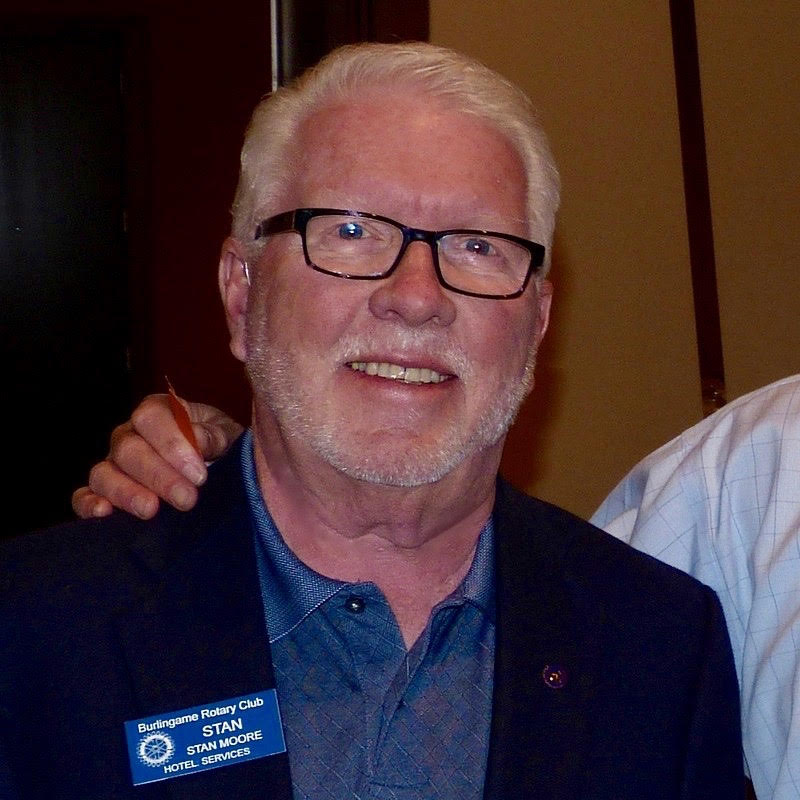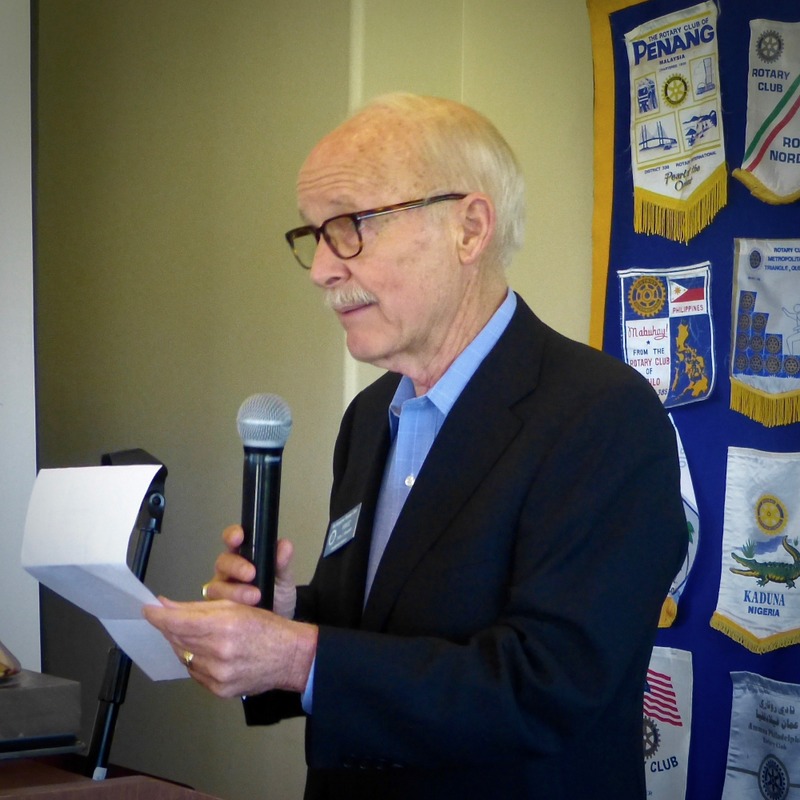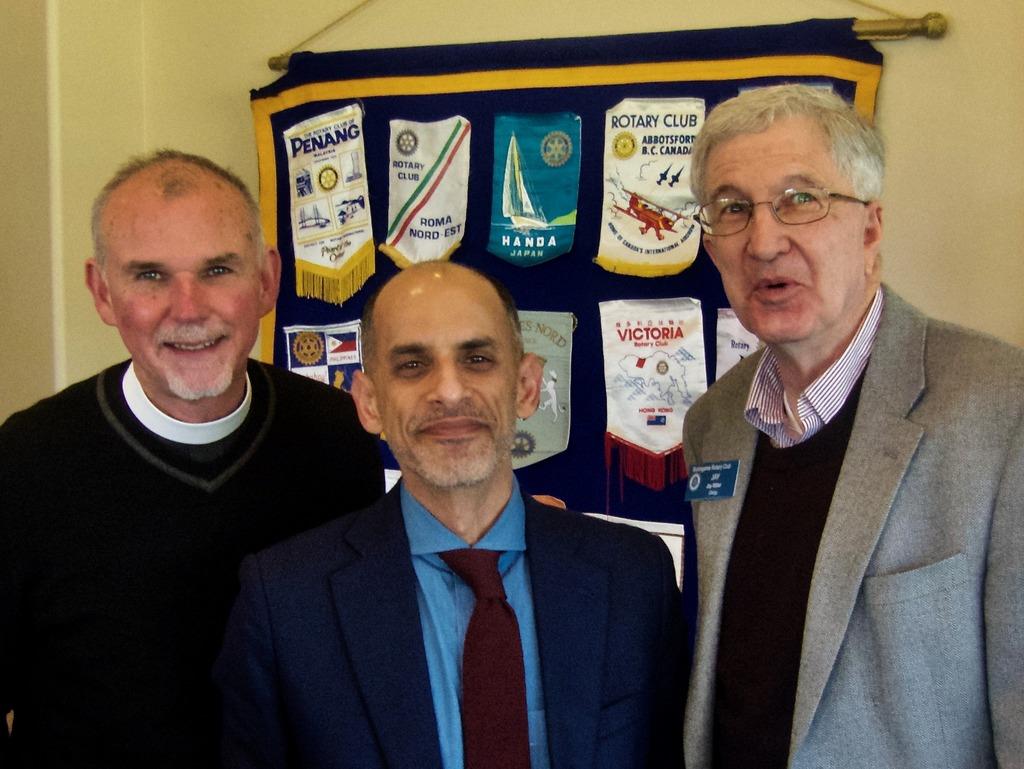High Gear March 22, 2017
Posted by Rosalie McCloud on Mar 22, 2017

It’s just noon and the day is and has been breathtaking. We woke to lovely, steady rain, then the world blossomed into glorious sunshine. We proceeded to beautiful Poplar Creek for a day of inspiration.
President Stan called the meeting to order at the stroke of 12:15.
Pledge and Invocation

The Pledge was led by Paul Watermulder. Fritz Brauner invoked the lyrics to Johnny B. Goode, honoring the passing of Chuck Berry. Those were the days, young Jedi...
Deep down in Louisiana close to New Orleans,
Way back up in the woods among the evergreens,
There stood a log cabin made of earth and wood,
Where lived a country boy named Johnny B. Goode –
Who never, ever learned to read or write so well,
But he could play a guitar just like a ringing a bell.
GO, GO, GO Johnny, go/go,Go Johnny, go/go, Go, Johnny, go/go, Johnny B. Goode
Thanks for the memories, Chuck Berry! You, too, Fritz! The truth is that President Stan asked Fritz Brauner to fill a little time. Fritz started with his Chuck Berry Days at New York’s Columbia Business School. Barry Parker contributed a story about a referral he received to the Russian Nationalist Orchestra who engaged him to register a trademark. The declaration was signed by no less than Boris Yeltsin. His signature was authenticated when vodka stains were identified on the document. Paul Watermulder introduced his friend Thomas Skillings, who introduced Speaker for the Day Parvez Ahmed.
Guests and Visiting Rotarians
.jpg)
No visiting Rotarians. Pete Wanger and Alden Cunningham have been adopted. Our guest was Reverend Thomas Skillings who introduced the speaker for the day Parvez Ahmed. Thomas Skillings is a longtime colleague of Paul Watermulder in ministry in Burlingame. Reverend Skillings credits our Paul with teaching him the value of seeing the faith communities in Burlingame as partners and friends, not as competitors. He also appreciates our Rabbi Jay Miller for introducing him to his first Muslim friends and colleagues.
As a Christian person and a clergyperson, Reverend Skillings is concerned about our tendency as human beings to try to find the scapegoat and to demonize others; to stereotype those who are different than we, or those whom we don’t understand. Often, these people are marginalized, often violently.
Program
 Reverend Skillings introduced Parvez Ahmed who is an attorney.He serves as Chief Development Officer and General Counsel for Ta'leef Collective (www.taleefcollective.org), a 501(c)(3) non-profit based in Fremont, California. Prior to joining the non-profit space, Parvez specialized in business litigation and presently serves as a consultant and subject-matter expert in electronic discovery. He also serves as an Adjunct Professor of Law at the University of San Francisco where he teaches a course on Islamic Jurisprudence. As a passion project, he co-hosts a monthly podcast called Diffused Congruence, which seeks to celebrate the many facets of the American Muslim experience. The podcast features long-form interviews with unique and interesting personalities from within the American Muslim community, sharing their personal narratives and discussing issues critical to Muslim life in America. Parvez studied Arabic and Islamic Jurisprudence extensively with teachers in the United States, India, and Egypt. Parvez has been involved with the Muslim community for over 20 years and has lectured on topics related to Islam at various college campuses, forums, and religious institutions. Parvez lives in the San Francisco Bay area with his wife, two daughters, and three cats.
Reverend Skillings introduced Parvez Ahmed who is an attorney.He serves as Chief Development Officer and General Counsel for Ta'leef Collective (www.taleefcollective.org), a 501(c)(3) non-profit based in Fremont, California. Prior to joining the non-profit space, Parvez specialized in business litigation and presently serves as a consultant and subject-matter expert in electronic discovery. He also serves as an Adjunct Professor of Law at the University of San Francisco where he teaches a course on Islamic Jurisprudence. As a passion project, he co-hosts a monthly podcast called Diffused Congruence, which seeks to celebrate the many facets of the American Muslim experience. The podcast features long-form interviews with unique and interesting personalities from within the American Muslim community, sharing their personal narratives and discussing issues critical to Muslim life in America. Parvez studied Arabic and Islamic Jurisprudence extensively with teachers in the United States, India, and Egypt. Parvez has been involved with the Muslim community for over 20 years and has lectured on topics related to Islam at various college campuses, forums, and religious institutions. Parvez lives in the San Francisco Bay area with his wife, two daughters, and three cats.
The challenge and difficulty for those of the Muslim faith is to be able to define ourselves as who Muslims are, rather than who they are not. The narrative is ubiquitous as to how Islam and Muslims are portrayed. It cannot be denied that things do occur; the desire is to be able to identify who Muslims are at their core. Only twenty percent of the 1.2 to 1.3 billion Muslims are Arabs. The vast majority are not Arabs; they are largely African-Americans. Sunnis comprise 80% of Muslims while Shia are 20% of the population. Sunni and Shia share a scripture. All worship the same God and honor the same prophets: Adam, Abraham, Noah, Jesus; the last is Mohammed. The split establishing Sunni and Shia occurred upon the death of Muhammad. The Shia sought to look to the bloodline and establish a dynasty. The Sunnni preferred to elect a new leader, preferred a political act. Three facets determine the attitude of the world's peoples toward Islam.
1. Recognition of Islam as a religious faith with a tradition of prayer and fasting. Muslims worship the same god of Abraham – all knowing, compassionate, and merciful – the same as Jews and Christians.
2. Those who are well-traveled have discovered the aesthetics of glorious civilizations comparable to any of the other global civilizations of Rome, Egypt, Asia. History tells of Islam’s influence in the development of Algebra, Trigonometry, the sciences. The most beautiful poetry known to man was derived from the Persian Sunni Muslim poet Rumi, jurist, Islamic scholar, theologian, and Sufi mystic.
3. A view of Islam as a political ideology used to further various political goals. Historically in Islam, the clergy serve in conscious opposition to the political state. Thank you so much for this interesting and revealing presentation!!!
Next Week: Brad McCulley, Director of the fabulous Burlingame Library!
HAPPY GLORIOUS SPRING!!!